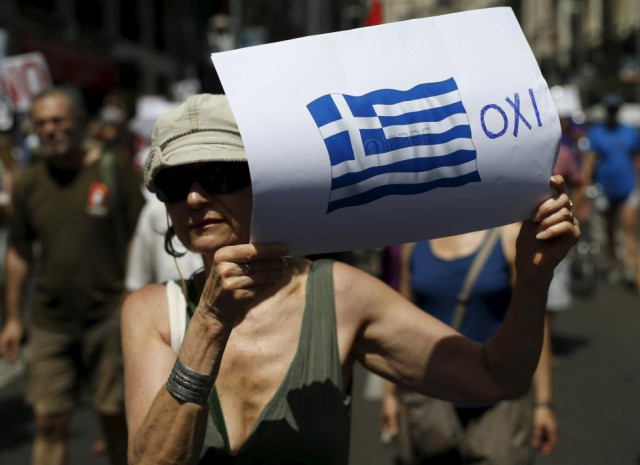The Greek ‘no’
Greece is a case study on the risks the Pakistani financial system is built upon

A woman holds a placard with a Greek national flag next to a message in Greek reading, "No" during a rally in support of Greece, in Madrid July 5, 2015. PHOTO: REUTERS
For us in Pakistan, the drama playing out in Europe should be of interest for more than academic reasons. Greece is a case study on the risks the Pakistani financial system is built upon. Like Pakistan, Greece has a corrupt and ineffective tax collection system, populist spending habits, and a tendency to borrow heavily from banks to finance the resulting deficit. Like Greece, Pakistani banks have massive exposure to their government’s debt. Unlike Greece, however, Pakistan thankfully has its own currency which limits the default risk for the banks and their depositors. But how long do we expect that to remain a bulwark against fiscal stupidity? The events in Greece in the coming months may well provide Pakistan with a stark warning of the consequences of believing in budgetary magic.
Published in The Express Tribune, July 8th, 2015.
Like Opinion & Editorial on Facebook, follow @ETOpEd on Twitter to receive all updates on all our daily pieces.



















COMMENTS
Comments are moderated and generally will be posted if they are on-topic and not abusive.
For more information, please see our Comments FAQ